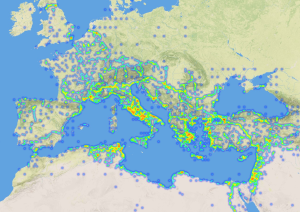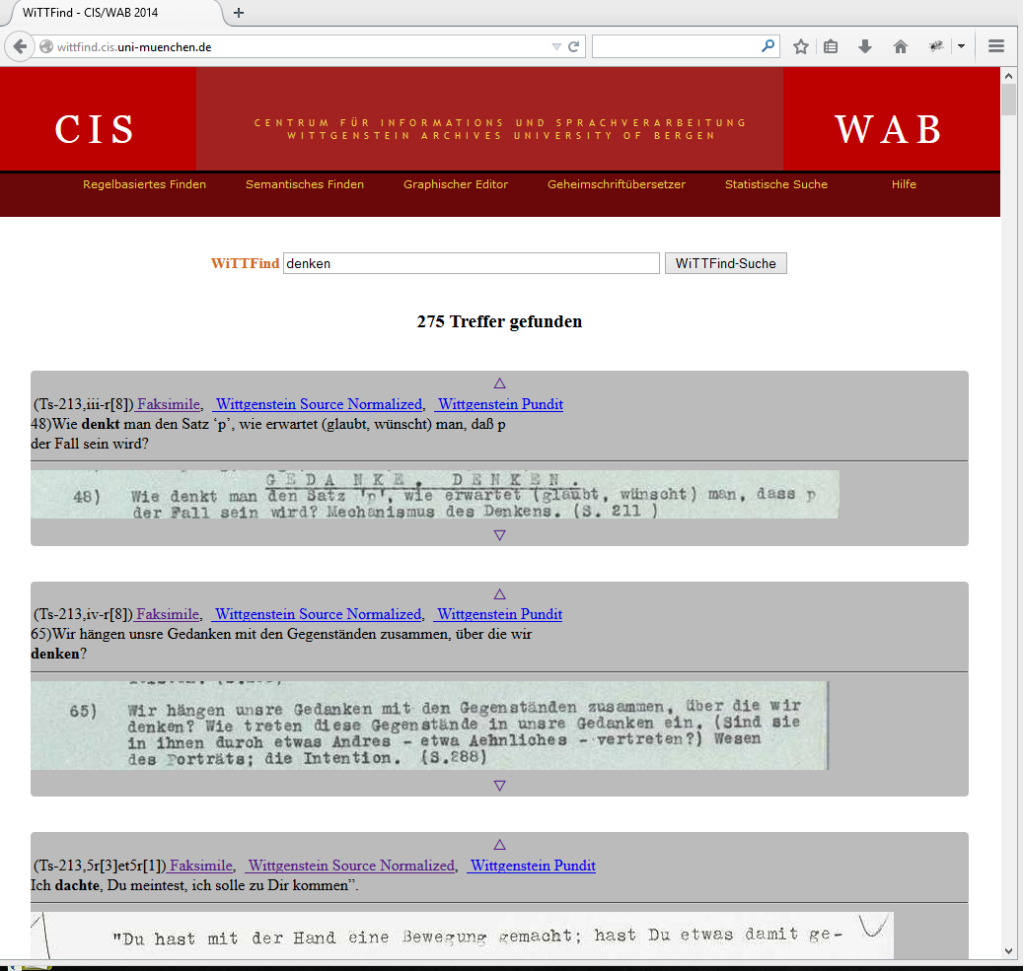
During May we invited humanities academics and technologists to submit innovative ideas for small technology projects that would further humanities research by either using open content, open data and/or open source (in the Open track) or building upon the research, tools and data developed within the DM2E project (in the DM2E track).
We’re very pleased to announce that the winners of this second round of the Open Humanities Awards are :
Open track
- Dr. Rainer Simon (AIT Austrian Institute of Technology), Leif Isaksen & Pau de Soto Cañamares (University of Southampton) and Elton Barker (The Open University) for the project SEA CHANGE
- Dr.-Ing. Michael Piotrowski (Leibniz Institute of European History (IEG)) for the project Early Modern European Peace Treaties Online
DM2E track
- Dr. Maximilian Hadersbeck (Center for Information and Language Processing (CIS), University of Munich (LMU)) for the project finderApp WITTFind
All winners will receive financial support to help them undertake the work they proposed and will be blogging about the progress of their project. You can follow their progress via the [DM2E blog](https://dm2e.eu/blog).
—
####Open track – Award 1: SEA CHANGE
The first award of the Open track goes to Dr. Rainer Simon (AIT), Leif Isaksen & Pau de Soto Cañamares (University of Southampton) and Elton Barker (The Open University) for the project Socially Enhanced Annotation for Cartographic History And Narrative GEography (SEA CHANGE). This project will make available high-quality open geographic metadata for Historic Geospatial Documents – historic documents that use written or visual representation to describe geographic space. In the course of two “hackathon”-like workshops, the project will work with academics and students of relevant disciplines (e.g. history, geography) as well as with interested members of the public on annotating selected documents and making use of the results.
The outcome will be a body of Linked Open Data that enables humanities scholars to “map” and compare the narrative of ancient literary texts, and the contents of early cartographic sources with modern day tools like Web maps and GIS. This data will make it possible to contrast their geographic properties, toponymy and spatial relationships. Contributing to the wider ecosystem of the “Graph of Humanities Data” that is gathering pace in the Digital Humanities (linking data about people, places, events, canonical references, etc.), it will open up new avenues for computational and quantitative research in a variety of fields including History, Geography, Archaeology, Classics, Genealogy and Modern Languages.
SEA CHANGE will complement the ongoing Pelagios research project, a pioneering multi-year initiative funded by the Andrew W. Mellon Foundation, JISC and the AHRC, that aims to aggregate a large corpus of geographic metadata for geospatial documents from Latin, Greek, European medieval and maritime, as well as early Islamic and Chinese traditions. SEA CHANGE will draw content from similar sources as Pelagios (e.g. the Perseus Digital Library, the Open Philology Project, the Internet Archive or Wikisource), and re-use some of its tools (e.g. the Recogito annotation tool). But in contrast to Pelagios, SEA CHANGE will explore a crowdsourcing approach. It will trial different aspects of collaborative geo-annotation, and ascertain their consequences in terms of data quality, resources required, and participant motivation. Most importantly, however, Dr Rainer Simon highlights:
we are convinced that SEA CHANGE is more than just a means to generate exciting new data relevant to humanities research – it is also a chance to engage with a wider audience and, ultimately, build community.
—
####Open track – Award 2: Early Modern European Peace Treaties Online
Peace treaties between dynasties and states form an important part of our European cultural heritage. They are also essential for research into early modern peacekeeping and diplomacy. Early Modern European Peace Treaties Online bundles manuscripts that are scattered over archives all over Europe, often hard to access, and partly undocumented. The digitized manuscripts are annotated with basic metadata, and some particularly important treaties are also available as full-text critical editions. This unique combination of digital facsimiles and critical editions has turned out to work as a well-received starting point for scholarly research in this area.
The collection data is currently stored in a relational database with a Web front-end and is one of the most popular digital offerings of IEG. However, it is currently not available as Linked Open Data. This project aims to bring the collection to the Linked Data cloud, which will allow researchers not only to browse the collection but also to use and reuse the data in novel ways and to integrate it with other collections, including Europeana.
The approach foreseen is to represent the key facts of the peace treaties (date, place, signatories, powers, type of treaty, etc.) in RDF using the nanopublications approach, an approach originally developed in the biomedical domain. The publication of the European peace treaties collection as Linked Open Data will make more content and data openly available for researchers to use, and will make it possible to link it to other relevant information, e.g., persons and places via GND/VIAF.
—
####DM2E track – Award: finderApp WITTFind
At his death, the Austrian philosopher Ludwig Wittgenstein (1889-1951) left behind 20,000 pages of philosophical manuscripts and typescripts, the Wittgenstein’s Nachlass. In 2009 the Wittgenstein Archives at the University Bergen (WAB), a member of the DM2E project, made 5000 pages from the Nachlass freely available on the web at Wittgenstein Source. Since 2010, the research group “Wittgenstein in Co-Text” has worked on developing the web-frontend finderApp WiTTFind and the “Wittgenstein Advanced Search Tools” (WAST), which provide the possibility of rule-based searching Wittgenstein’s Nachlass in the context of sentences.
The current project finderApp WiTTFind offers to the users and researches in the field of humanities a new kind of search machine. Unlike the search capabilities of Google books and the Open Library project, the tools are rule-based and in combination with electronic lexicon and various computational tools, this project will provide lemmatized and inverse lemmatized search and allow queries to the Nachlass which include word forms, semantic and sentence structured specifications. Syntactic disambiguation is done with Part-of-Speech tagging. Query results are displayed in a web browser as XSLT-transformations of the transcribed texts, together with facsimile of the matching segment in the original. With this information researchers are able to check the correctness of the edition and can explore original handwritten edition-texts which are otherwise stored in access-restricted archives.
The project consists of three elements:
- An extension of the finderApp which is currently used for exploring and researching only Ludwig Wittgenstein’s Big Typescript TS-213 (BT) to the rest of the open available 5000 pages of Wittgenstein’s Nachlass
- Making the tool openly available to other humanity projects by defining APIs and a XML-TEI-P5 tagset, which defines the XML-structure of the texts which are processed from the finderApp
- Building a git-server-site which offers the applications and programs to other research projects in the field of Digital Humanities
***
We congratulate all winners and look forward to seeing the outcomes of their work preseted on the DM2E blog and at upcoming DM2E events in the near future.




Comments are closed.